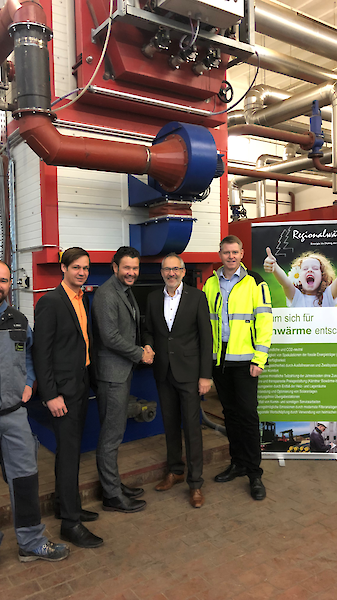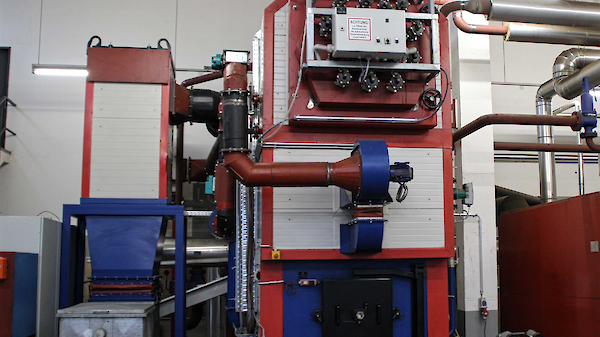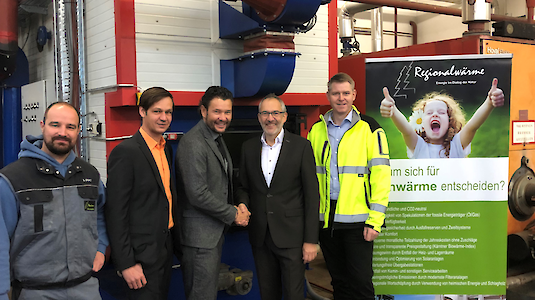Energy contracting - a project for the future
Energy contracting? Two experts, Bruno Oberhuber; GF Energie Tirol and Johann Hafner, GF BC Regionalenergie (LN), explain to us the basic principles and advantages of this option for saving energy.
Energy must be used carefully. This is clear. It is also understood and everyone is pleased that the reduction of energy costs will reduce costs. But how best to save energy? That is where energy contracting provides the answer.
by contract. Energy contracting? Ahm? Okay: Energy - that's clear. But what does contracting mean? An expert on this question is DI Bruno Oberhuber. He is managing director of Energie Tirol in Innsbruck and explains the basic principles of energy contracting: "Energy contracting is a service contract for an energy system. This contractual agreement helps to save energy. And with the financial savings it brings, the system is in turn financed. So it is a very smart concept".
the contractor. The contractor, an external service provider, supplies the contracting party with energy, guarantees it energy-saving measures. A contract is concluded between the two. " Nevertheless, contracting is particularly interesting when energy costs are high, e.g. € 100,000 per year. These can be reduced by the contractor to € 75,000. The savings are used to finance the energy system," says Bruno Oberhuber. The refinancing of the investment is thus carried out through the sale of energy - heat and electricity - to the contracting party or through the energy savings achieved.
Plus points. Where does Bruno Oberhuber see the big plus points of energy contracting? Answer to this: "Old buildings in particular can be thermally optimally renovated with such a contract due to the savings. The contractor guarantees the improvement. And the contracting party can be sure that a high-quality modernisation is carried out. Furthermore, the energy contracting model makes it easier to switch to renewable energies". It is obvious that the contractor - also in his own interest - is always an energy-saving expert. This is a huge advantage for the client.
Austrian Ecolabel for optimal contracting. Of course, this includes those energy service providers that have been certified with the Austrian Ecolabel. One of these licensees is the Regionalwärmegruppe based in Köttmannsdorf, Carinthia. Its managing director, Johann Hafner, will inform us about further details of energy contracting:

What experience in heat contracting have you been able to gather in recent years? "Well, our heat contracting model is becoming increasingly popular. The decisive factor for our contracting customers is that they do not have to make a one-off investment in a new heating system. The outsourcing of the entire implementation to us, including the expansion of the old heating system, as well as the installation and support of a new system during ongoing operation, represents a considerable relief for our customers".
From which areas do your contracting customers come? The majority of our customers come from the hotel, catering, industrial and commercial sectors, and above all from the social housing sector. Most of the contracting projects we have implemented so far are existing properties where we have been able to replace fossil fuels with renewable energy sources.
At what investment costs is energy contracting interesting for the client? "For larger properties, the total investment costs can quickly range from 80,000 to 400,000 euros. At this cost level, more and more project developers and owners are deciding much faster and earlier to switch to alternative heat generation - and to use heat contracting."
For whom is heat contracting less suitable? "In the area of single-family households, the model has not yet proven itself in our company. This is because here, preference is given to energy sources that take up considerably less space than the wood chip or pellet heating systems we offer".

Does your company use wood chips and pellets as material for heat generation? "Exactly. Only these two materials are used in our plants. For these plants - depending on the size of the object to be heated - a corresponding space requirement for central heating and storage of the fuel materials is assumed."
Then every planning is highly individual? "Of course. Each project is individually assessed by us in order to identify situation-specific characteristics and also to guarantee security of supply, especially during the winter months".
How do you assess the future of energy contracting? "We see the greatest potential for systems with a heating capacity of 50 kW or more, especially in new buildings".
Solving energy-saving issues. We thank the two experts, Bruno Oberhuber and Johannes Hafner, for this information on energy contracting. Perhaps this model is also the solution to your energy-saving questions? You can find out more about it here:
https://www.energiesparverband.at/fileadmin/esv/Broschueren/Energie-Contracting.pdf
